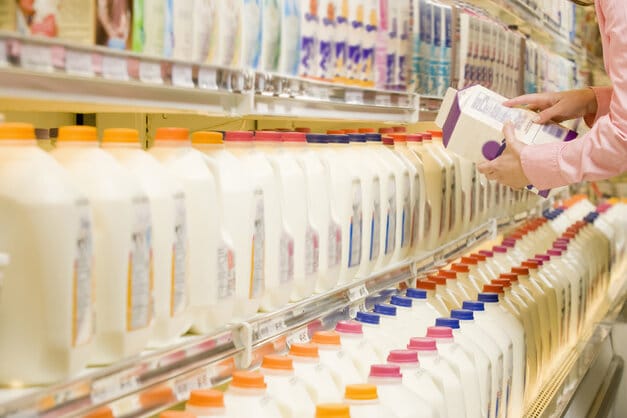

The expiration date can be a tricky thing for any grocery shopper to master. Certain products which promise to last mere days or weeks often stay fresh long after that printed date passes. Still others can start to taste stale right when that deadline hits. Don’t worry, neighbor — you aren’t alone in your confusion. The truth is, with the exception of baby formula, there are no set expiration date guidelines in the U.S. And for that reason, food companies themselves are tasked with determining how long their products will remain at peak freshness.
So, how do you determine the right products to buy — and how much time you have to use them — when you’re up against a system that isn’t set in stone? A bit of expiration date insight can help. Read on for an overview from your friends here at Food Town.
First and Foremost: It Helps to Grasp the Lingo
Fun Fact: Expiration dates are there solely to indicate how long a product will remain fresh. They have nothing to do with food safety. And not every printed expiration date is created equal. Here are a few common dates you’re likely to see printed on products at your neighborhood grocery:
There are all sorts of other interesting bits of info surrounding product dating. For instance, if you see a date that looks — well, just plain weird — on certain egg cartons, sodas and other products, you’re likely looking at a Julian date.
Understand How Long Certain Types of Products Generally Last
That printed expiration date is only half the battle when it comes to making sure your foods are at their prime. After purchasing your items, you’ll need to store them properly — and use them within a reasonable amount of time — to ensure they’re safe for consumption. Every product will vary somewhat, but here are a few general timeframe guidelines to keep in mind:
It should be noted that the freezer guidelines listed above are meant to indicate when foods will remain at their most fresh. As foodsafety.gov notes, frozen foods that remain at a continuous temperature of 0 degrees Fahrenheit can last indefinitely. Want to dig into this issue some more? Foodsafety.gov’s Cold Food Storage Chart and FoodKeeper page offer a wealth of insight into all sorts of products not listed above.
Know What to Do if Your Pantry Items Are Past Their Date
Even the most “with it” of shoppers get forgetful sometimes, allowing food to remain in the pantry after its expiration date. When that happens, there are a few things you can do. If the expired food is in a can that’s dented or rusted, it might be best to throw it out. That’s because potential holes/openings within the can might allow pathogens in, leading to possible spoilage or the potential for food poisoning. Of course, as we’ve mentioned above, many foods remain perfectly fresh long past that printed date. Depending on just how far past that date your canned vegetables, soups, boxed pastas and bottled/jarred condiments are, there’s a decent chance you can use them just as you regularly would. Just be sure to give them a check before you prepare or eat them. (Honestly, that’s good advice no matter whether a product is past its date or not!) If a product is a bit past its date but you don’t think your family will wind up using it, you might also consider donating it to a food pantry. Use the same judgment as you would for a product you plan on eating yourself. If you wouldn’t trust it, don’t donate it. And if you do donate it, just know that food bank will take a look to make sure it’s safe for whoever receives it to consume.
Expiration dates aren’t an exact science, but they’re the best way to make sure the food you’re buying and preparing will taste its best. If you want to dig even further into the information we’ve laid out here, download this handy product dating info sheet provided by the USDA. Rest assured your Food Town is big on food safety. You can find information about recent safety recalls on our website, and our blog has all sorts of food safety tips for your family. Each store also has a dedicated food safety manager hard at work during every hour we’re open. Pull together your grocery list and then stop by to do your shopping! We look forward to seeing you at your neighborhood grocery!
If you can't find an item you're searching for, let us know! We're always looking for ways to improve your Food Town experience, and we'll do our best to make that product available. Make a suggestion
29 Houston-Area Locations